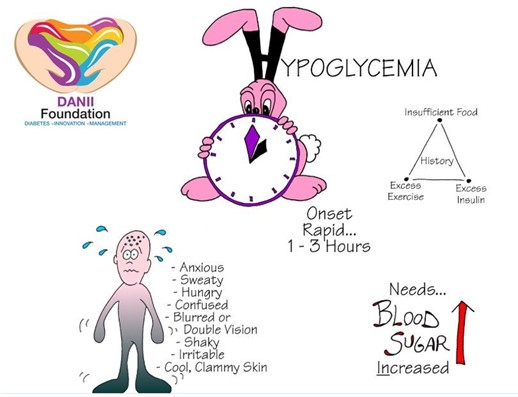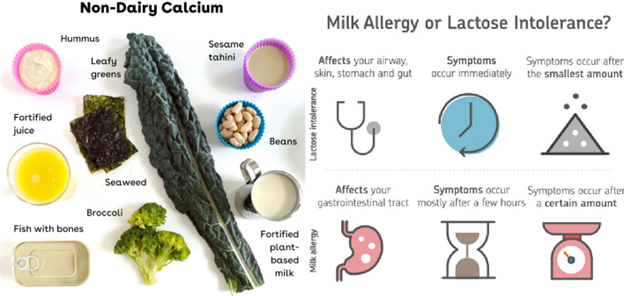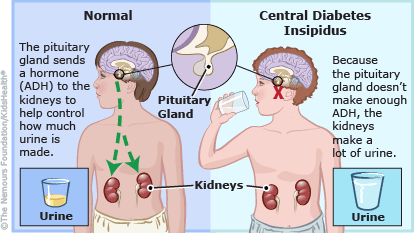Mr. D receives a daily injection of 70/30 NPH/regular insulin premix at 7:00 AM. The nurse expects that a hypoglycemic reaction is most likely to occur between:
09:00 AM and 11:00 AM
08:00 AM and 10:00 AM
07:00 AM and 09:00 AM
12:00 PM and 3:00 PM
The Correct Answer is A
The peak time of 70/30 NPH/regular insulin premix is usually 2 to 12 hours after injection, with an average peak time of 4 to 6 hours. This means that the highest risk of hypoglycemia is typically 4 to 6 hours after the injection, which would fall between 11:00 AM and 1:00 PM. However, it's important to note that hypoglycemic reactions can occur at any time, so the client should be monitored closely throughout the day for any signs or symptoms of low blood sugar.

Nursing Test Bank
Naxlex Comprehensive Predictor Exams
Related Questions
Correct Answer is A
Explanation
Broccoli and kale are good sources of calcium, and by adding them to their diet, the client can increase their calcium intake without consuming milk. It is important to note that some calcium supplements may irritate the stomach but stopping them altogether is not advisable without consulting a healthcare provider. Vitamin D is not a milk product, and it is essential for calcium absorption. Avoiding foods with vitamin D can worsen the low calcium levels. Cheese is a milk product and may not be suitable for someone with a milk allergy.

Correct Answer is A
Explanation
Excess fluid volume related to intake greater than output would be the most appropriate nursing diagnosis for a patient with symptoms of DI (diabetes insipidus). This condition results in excessive urine output and, as a consequence, can lead to dehydration and electrolyte imbalances. Therefore, monitoring and managing fluid volume is a priority for patients with DI.
Risk for impaired skin integrity related to generalized edema is more commonly associated with conditions that cause fluid retention such as heart failure, liver failure, or kidney disease, rather than DI.
Activity intolerance related to muscle cramps and weakness is a possible nursing diagnosis for patients with conditions that affect muscle function, such as muscular dystrophy or multiple sclerosis, but not specifically for DI.
Insomnia related to waking at night to void is more commonly associated with urinary frequency or nocturia due to conditions such as urinary tract infections or benign prostatic hyperplasia, but not specifically for DI.

Whether you are a student looking to ace your exams or a practicing nurse seeking to enhance your expertise , our nursing education contents will empower you with the confidence and competence to make a difference in the lives of patients and become a respected leader in the healthcare field.
Visit Naxlex, invest in your future and unlock endless possibilities with our unparalleled nursing education contents today
Report Wrong Answer on the Current Question
Do you disagree with the answer? If yes, what is your expected answer? Explain.
Kindly be descriptive with the issue you are facing.
